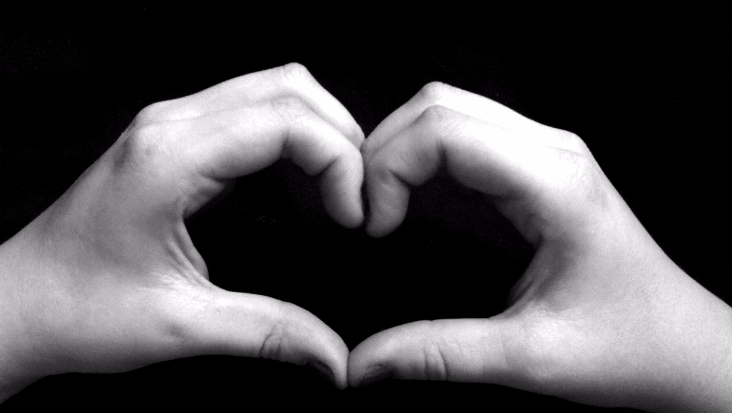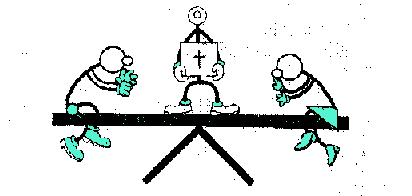elishasmantle.com


Identifications
of Love
Idolatry
in any form is a sin, even when that which we idolize
seems good and necessary for our lives. God designed our
spirits to seek and to give love for His glory, but when
we worship our own chosen forms of love; we serve
ourselves instead of God and others.
Identifications of love are those words, gestures,
actions and attitudes we interpret as love from others.
These "packages" are idols, which define and
limit our idea of what true love is; they almost
assuredly deny us the full joy of giving and receiving
it. When we demand these "packages" of love
from those around us, we practice unregenerate love.
This lesson includes presentations on the subject of
identification of love: unregenerate love, and the
problem of idolatry.
Identification and unregenerate love
God's design for relationships is that we "Be
subject to one another out of reverence for Christ"
Ephesians 5:21 God describes how relationships should and
do work.
To the degree of our closeness to the cross (meaning how
much of our flesh has died on that cross with Christ)
that is the degree of our ability to "be subject to
one another".
The inverse is also true: to what degree of our distance
from the cross, we will "be subject to harmful
things in each others flesh. "Love is not arrogant
or rude. Love does not insist on its own way: it is not
irritable or resentful." I Corinthians 13:5
unregenerate (worldly) love arrogantly, rudely and
resentfully "insists on its own way."
Father
God created us to receive love. When love comes as He
designed it, we identify it properly for what it actually
is, through affection, wise discipline, and affirmation,
we see sacrificial love. When we don't receive proper
love, we identify it as whatever we get from the primary
people in our lives. We might see love as abuse,
criticism, battering, and neglect as substitutes for
love, and attention, as gifts.
Other than God designed sacrificial love, every other
identification of love can he harmful.
Identifications of love in marriage
We tend to demand what our identification of love is. We
measure and judge others by what we have grown up with as
love. We must have more and more. For example: A woman's
father withheld himself but gave her material things.
Hungry for love from her husband, she demanded things and
more things, but it was never enough.
Having identifications of Jove is like buying a candy
bar, only to throw away the candy and eat the wrapper. An
example is that a woman brings her husband to counseling
to be "fixed." Her identification of love was
to comfort a weak, crying man. Her husband's
identification of love was to be fiercely scolded. When
he felt as though he needed love, he would provoke his
wife until she scolded him. When she went too far and he
cried she comforted him. Their faulty pictures of love
drove them into a destructive cycle.
Another example is a woman whose father was a busy
rancher. When she was sick as a child, he would stay home
and comfort her. She learned to make illness last as long
as she could because this was the only time that her
father would show her affection, and comfort. When she
mates, she measured her husband's love by the extent to
which he was willing to comfort her during an illness.
When he would leave her to go to work after she said that
she had a headache and wasn't feeling well, this told her
that he didn't love her.
Gender
and identification of love
A man often identifies love by what his mother did. He
may unconsciously demand that his wife fulfill that
picture. He may have formed an identification of love
based on fantasy. Sometimes a boy needs to believe that
his mother was much more noble, holy, righteous, loving
or comfotting than she actually was. Thus he may make
demands based on a picture of love formed out of that
fantasy, as opposed to what was truly received.
A woman ofien identifies love by what her father did or
did not do, and measures her husband's love by that
standard.
The dynamic of counter balance
A dynamic in all relationships, especially in marriage is
similar to a seesaw or a teeter-toner. For example one
partner may be very talkative, and the other is silent;
because of the silence the talkative partner talks even
more. When away from the partner the silent one talks
freely and vice versa. Together neither are flee to be
themselves.
Another example is that one is a strict disciplinarian,
so the other withholds, or placates and mediates. This
causes the first to discipline more, and so on... Mother
example is that one becomes super religious; the other
counters by becoming more earthly and worldly. This
causes the first to be more "spiritual," and so
on..
Putting Our Identification of Love to Death on the Cross
may not change the way that we do things, or the way we
are, but it can transform the way we react to our spouse.
There won't be that bitter root expectation that my
spouse will never meet my need. There will be a greater
ability to receive the love that your spouse shows as
their expression of love. We will be able to ask for what
we need and it will be enough, because that wrong
identification will have been put to death on the cross.
Until
unregenerate love dies
o We can't be free to be ourselves with each other
o We feel imprisoned, controlled, measured and judged.
o We unconsciously counterbalance each other and thus are
never really in balance.
o We live in a world of tension, frequently trying to
anticipate demands and potential criticisms.
o We cannot be real having to "act out"
whatever may please or placate the other.
o We will manipulate, push and pull, tying to force the
other to fulfill what we think will make us feel loved.
Unregenerate love is:
o Use - manipulation, exploitation, demand, control and
possession
o Idolatry - we worship a "form" of love rather
than leaving ourselves open to the true love of God. We
try to enslave others to the worship of those same idols,
o A source of fire to heat the furnace of our anger when
others refuse to give in.
o Selfish rater than sacrificial is unregenerate love.
Unregenerate love makes demands. Sacrificial love lays
down life for others.
Healing those with identifications of
love
o Recognition - Help individuals to clearly identify~'
their own identifications of love. Help them to
understand their need for love in "other
packages", and identi~' the bitterness which was
always hidden under the identifications of love.
o Lead to confess, repent and receive assurance of
forgiveness for the sin of idolatry, the underlying
bitterness, and the defilement of loved ones caused by
demands.
o
Pray to bring all unregenerate ways of loving to death on
the cross and to release in us Jesus' way of loving (our
love imprisons; Jesus' love sets free). Pray to reclaim
the ground given to satan, and ask the Lord to restore
the ability to give and receive truer forms of love. Take
the expectations to the cross (even if feelings of loss
or anger are not there). Bring to death the structures of
demand and counterbalances.
Identifications of love are formed out of snapshots from
childhood; we all have them. When the expressions of love
we've experienced are profuse and varied, we learn to
recognize and receive love in many packages. It is when
love has been handed out sparingly that we latch on to a
few meager expressions and turn them into idols.
Sharing identifications of love can be a fine way for a
husband and wife to learn to know one another; it can
create closeness and understanding, and truly be fun.
However, even when there are wholesome identifications of
love, it is crucial to remember that all human love must
be redeemed on the cross. God hates idols and will see to
it there are no other gods before Him. In prayer, mates
can come to see the idols they have tried to force upon
one another. They will recognize how they have defiled
one another, and can then repent and ask forgiveness.
Recommended reading for this lesson...
The Transformation of the inner Man Chapters 19-20
Healing the Wounded Spirit Chapters 8-9
OLD
TESTAMENT
Psalm 19:1 - The heavens declare the glory of God:
the skies proclaim the work of his hands.
Psalm 23:1 - The LORD is my shepherd, I shall not be in
want.
Psalm 115:4-S - But their idols are silver and gold, made
by the hands of men. They have mouths, but cannot speak,
eyes, but they cannot see; they have ears, but cannot
hear, noses, but they cannot smell; they have hands, but
cannot feel, feet, but they cannot walk; nor can they
utter a sound with their throats. Those who make them
will be like them, and so will all who trust in them.
Jeremiah 18:6 -"0 house of Israel, can I not do with
you as this potter does?" declares the LORD.
"Like clay in the hand of the potter, so are you in
my hand, 0 house of Israel."
NEW TESTAMENT
Matthew 13:31 -- He told them another parable:
"The kingdom of heaven is like a mustard seed, which
a man took and planted in his field.'t
Matthew 20:1 -"For the kingdom of heaven is like a
landowner who went out early in the morning to hire men
to work in his vineyard."
Luke 9:24 - For whoever wants to save his life will lose
it, but whoever loses his life for me will save it.
John 12:24-25 (NAS) - "Truly, truly, I say to you.
unless a grain of wheat falls to the earth and dies, it
remains by itself alone; but if it dies, it bears much
fruit. He who loves his life loses it; and he who hates
his life in this world shall keep it to life
eternal."
John 15:1 - "I am the true vine, and my Father is
the gardener."
Romans 1:20 - For since the creation of the world God's
invisible qualities-his eternal power and
divinenature-have been clearly seen, being under-stood
from what has been made, so that men are without excuse.
Colossians 1:17-He is before all things, and inhim all
things hold together.
Ephesians 4:6 - .. .one God and Father of all, who is
over all and through all and in all.
I.
Jesus Counters our Common Counterbalances
Sometimes, when we were children and wanted to play on
the teeter-totter, we couldn't find a playmate just our
size. If we got on with someone roly-poly, we got
catapulted to the top while our rotund friend remained
seated unhappily on the ground. So we would say,
"Move in, you're too heavy," and we'd scoot out
tote end as far we dared. But even so, neither got a very
satisfying ride. If our friend got disgusted and jumped
off, we came down with a jarring thud - and then we were
really angry!
But if we saw big brother nearby, we'd call out,
"Hey, come help us!" If he stood in the middle
and used his strong legs to swing the seesaw up and down,
we'd both get a good ride.

Jesus is our big Brother, using His cross to equalize us
and smooth our ride in life. But that can happen only if
we invite Him daily, momentarily, by prayer - petitions
that include our death on the cross with Him, and
resurrection life that lets Him live in us, as us, for
us.
Common Counterbalances
gregarious, talkative . . ..............
.............silent, withdrawn
earthy, plodding...........
...........................mystical, dreamer,
absent-minded, impractical
.............................practical, attentive
emotional, demonstrative ...........non-demonstrative,
controlled.
permissive, placative. ..............disciplinarian
,authdritative
pious, prayerful.............
.........................worldly, unbelieving~
workaholic, serious..... ............................laid
back, fun-loving
Until Jesus balances us, we drive one another to extremes
When His cross sets us free, our differences no longer
drive or threaten they become the fun and spice of life!

Click
on the praying couple for prayer to
restore true love
click the back button or on the swordsman for more lessons

Share on Facebook
Site
Last Updated Monday, February 26, 2001. 22:06:10
|



